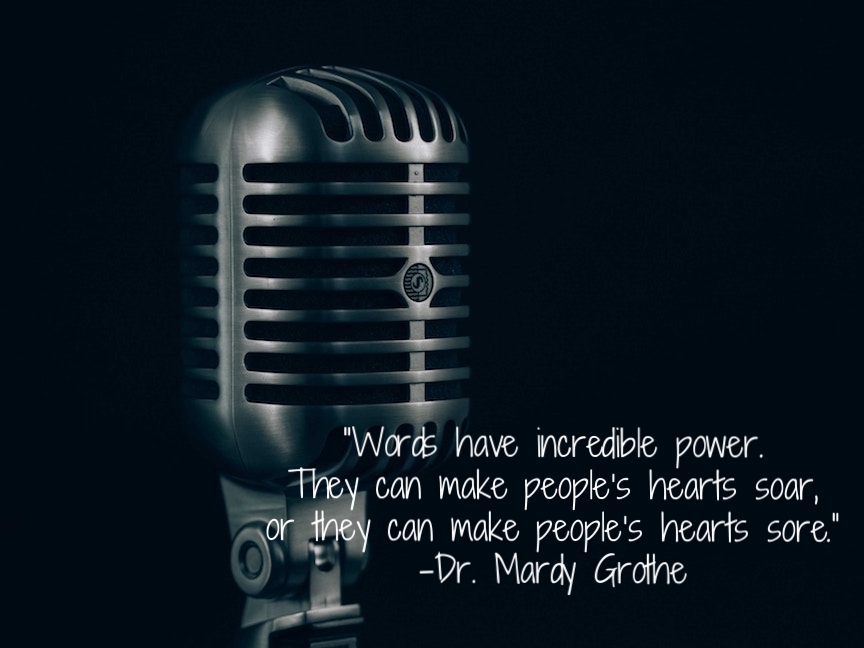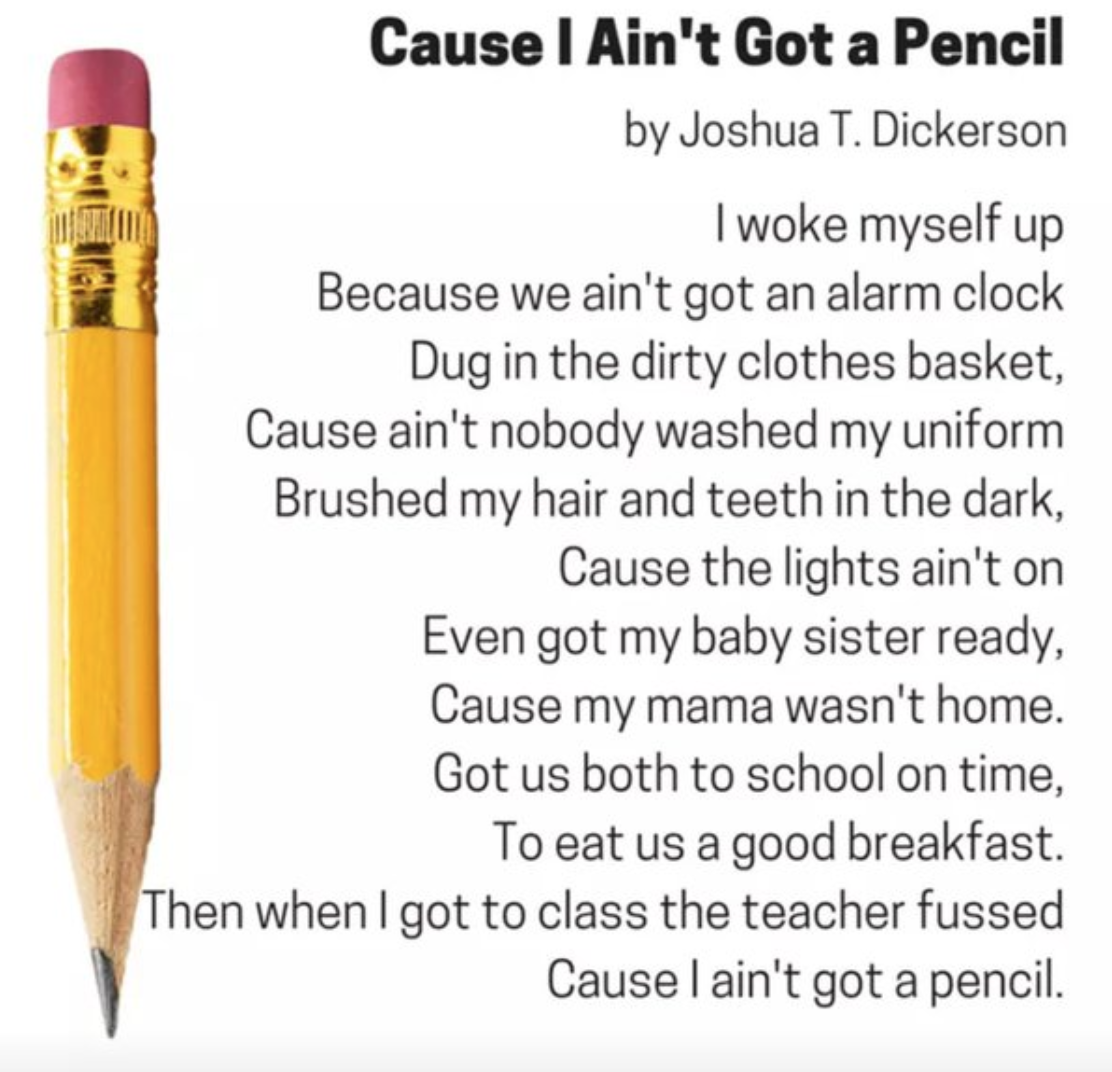Why Speaking Is A Skill Schools Suck At Teaching And How To Fix It
We spend all our existence learning to live. Sometimes we look at another person and think they have it all figured out but they don’t. That is the truth. We are all learning.
We are at different points; our levels of skill at various skills vary. If someone drew a curve for every skill there is we would all be somewhere else on the curve but no one would be at the top because each curve is infinite. There's always more to learn and that would be a lot of curves to draw and examine.
One of the things we continually learn is speaking.
But I learned how to talk before I even learned to walk! you might say.
I'm sure you did but here's the thing.
Speaking to an individual or a group to pass information on, or to teach, or to entertain, or to persuade is something we do every day. Most of us count on our speaking skill to perform at a high level on the job. Thus, the speaking skill is something we all can improve and become more successful and to have a greater impact on the world.
Don't believe me? Check this out.
In 2013 Google launched Project Oxygen to discover the secret recipe that makes the best employees. Prior to the project, Google believed individuals with STEM degrees were the biggest game changers. This theory proved untrue. The investigation found it was employees who were the best coaches; people with great communication and listening skills that provided the most value to the company.
In my recent post Listening Is A Skill Students Lack Because We Don't Teach It. Let's! I described how we are taught to read and write extensively in school but not explicitly instructed on listening as a success skill. But what about communication, especially speaking and presenting to groups and individuals? How are schools doing at that?
My opinion on this is clear as evidenced by the title of this article. Our educational system kind of sucks at teaching students to communicate orally and visually.
Take presentations...
Why Are Student Presentations So Bad Most Of The Time?
I remember having to present information for various classes in high school. I'm sure you do as well. Back in the 1990s, we defaulted to a podium and a set of flashcards that might have been aided by PowerPoint slides.
Today, students might use PowerPoint or Google Slides or Prezi or something else.
Back then, I was given a list of things my presentation had to contain. The emphasis was on content while there might or might not have been a mention of speaking clearly and maintaining eye contact with the audience.
Today? it's about the same.
Back then, most of us kind of sucked at presenting. Except that one Mexican kid I remember from Mr. Denis' Social Studies. That kid was great.
I don't remember everything, but I still remember what he talked about: the Aztec culture. I wasn't friends with him (though we were friendly) but I still remember that he brought props for all of us to see and touch and smell; artifacts and examples of the Aztec art and culture. I don't remember his name but I vaguely remember what that kid looked like.
I also remember being jealous of how well he did. Everybody knew he crushed it and Mr. Denis confirmed our suspicions with his comments afterward.
Today? it's about the same. While the presentation-giving technology evolves faster and faster our presenting/speaking skills seem stuck. I am sorry to say that most of our students suck real bad at giving presentations. Most are quite bad at communicating information. This is why half of the class is sleeping while the other half has side conversations on those dreadful presentation days.
And every once in a while a kid will step up and everybody listens. She has the secret sauce. Maybe on some unfathomable unconscious level she knows that
“The success of your presentation will be judged not by the knowledge you send but by what the listener receives.”
But most students suck at presenting information and it's not their fault because in school they are judged on the knowledge they send.
Schools Suck At Teaching Oral Communication
First, most teachers don't teach students how to present well. This is because we were not taught ourselves and we tend to think it is what it is. We get stuck in thinking that student presentations are supposed to be boring and everyone just has to suck it up and grind it out through a day or two of class presentations. We the teachers did in our day so they have to now. But that's a bunch of flowers.
Second, the emphasis has always been on the content of the presentations. The rubrics mandate to include A through Z and how much detail for each topic. We don't teach what effective presentations look like because we're often not quite sure ourselves. We don't show what effective presentations look like, because we don't really know how to model them and/or have not developed any ourselves.
Now compare this to writing...
Outline. Check that. Redo or refine if necessary. 1st draft. Check that. Make it bleed red ink from the teacher's pen. 2nd draft. Check that. Make it bleed again albeit hopefully less this time. Refine/redo if necessary. Final draft. Grade. Rinse and repeat such essay writing throughout the school year. And that's just practice!
Before all of the above happens, students have been extensively instructed throughout their educational journey on essay writing, structure, language, and whatever else goes into it.
Can you tell I'm not an English teacher? But the point is that the writing skill is repeatedly practiced and continually developed and not just in high school.
If we examine student communication in groups we find it lacks too. While most have learned how to get along and not yell or throw objects or body parts at each other during differences of opinion by their junior year of high school most groups don't do real group work.
While the environment appears collaborative we observe some students check out while others take over. First, many school projects have little meaning to students. They're just means to ends: graduation, college, job.
Second, due to perpetual lack thereof little class time is devoted to work on the group work part of the group work. Just as is the case with individual presentations, collaboration is assigned but not explicitly taught. Sure they are mentioned at the beginning but collaborative skills, which rely heavily on effective oral communication are not reinforced, revisited, and reassessed throughout the school year.
It turns out that Content Is King in school just as much as it is online. The problem is that students often don't get to choose the content. It's passed down through the sacred scriptures of the Book of [Insert State] State Standards.
How To Fix It
Here's the no silver bullets deal:
Without significant time investment into teaching students how to communicate orally using visual aids, most students will graduate high school lacking these important success skills.
Currently, the status quo dictates teachers employ a content-heavy but light-on-soft-skill-building approach to educating students. And while students undoubtedly pick up such skills as they stumble through the educational system these skills are rarely deliberately taught in high school. Raise your hand and wait to be called on or don't cut in front of others while standing in the lunch line just don't cut it.
Ideally, the federal, state, and local governments lead a system-wide mind shift in how school time is allocated but that's some utopian world that has nothing to do with the real one our students, their parents, and ourselves live in.
It's safe to assume that the man and those who fill his coffers will not suddenly emphasize success-skill-building in any meaningful way so again it is up to individual schools and teachers to lead this change.
Spending class time teaching our students life and work success skills is best practice. It's time well-spent now and forever. It's time invested in their future, not someone else's agenda.
This will look different depending on where you find yourself. Some of us have more flexibility than others. Some can do more than others but we all can do more than we are doing now. Hey, if this job was easy anyone could do it right? I'm including a couple of resources you can use to help students improve their communication skills.
For teaching and delivering better presentations check out Please Call The Cops 'Cause You're Killing Your Students! and How To Use Visuals To Avoid Death.
For teaching more effective collaboration check out How To Transform Groupwork Into Collaboration.
For teaching effective speaking check out How To Speak So That People Want To Listen.
What You Can Do Right Now
If you agree with me thank you but that is not enough. Check out the resources just above and pick just one small, medium, or large thing you can start teaching your students, plan how and when to do it, and implement it in your classroom now.
You have the power to change lives. Use it often so they can change the world.
Hi! I'm Oskar.
I teach, write, speak, rant to make the world better.
BOOKS & TOOLS
CONTACT ME
BLOG ARCHIVE:
- December 2025 1
- September 2025 2
- August 2025 5
- July 2025 4
- June 2025 2
- August 2024 2
- July 2024 2
- June 2024 1
- October 2023 1
- September 2023 3
- August 2023 6
- July 2023 6
- July 2022 2
- June 2022 1
- November 2020 3
- October 2020 3
- April 2020 1
- March 2020 5
- July 2019 1
- June 2019 1
- April 2019 1
- January 2019 1
- November 2018 3
- October 2018 2
- September 2018 1
- August 2018 8
- July 2018 11
- June 2018 4
- May 2018 5
- April 2018 2
- March 2018 4
- February 2018 5
- January 2018 3
- December 2017 1
- November 2017 5
- October 2017 7
- September 2017 6
- August 2017 5
- July 2017 3
- June 2017 10
- May 2017 7
- April 2017 7
- March 2017 15
- February 2017 12
- January 2017 13
- December 2016 15
- November 2016 8
- October 2016 7
- September 2016 12
- August 2016 14
- July 2016 10
- June 2016 13
- May 2016 10
- April 2016 8
- March 2016 5
- February 2016 7
- January 2016 6
- December 2015 5
- November 2015 8
- October 2015 2









